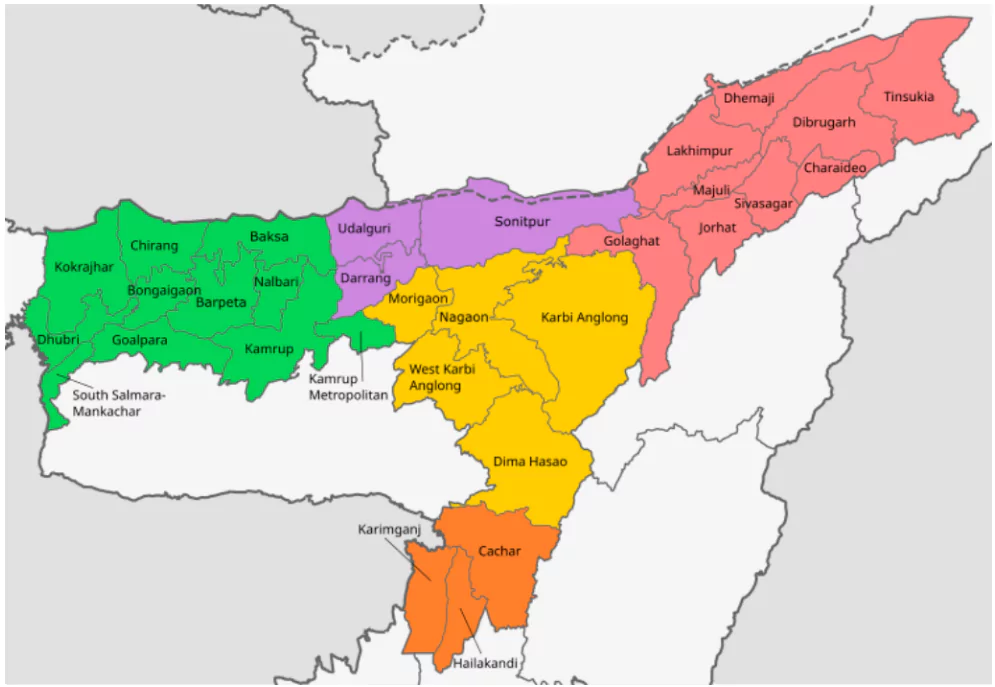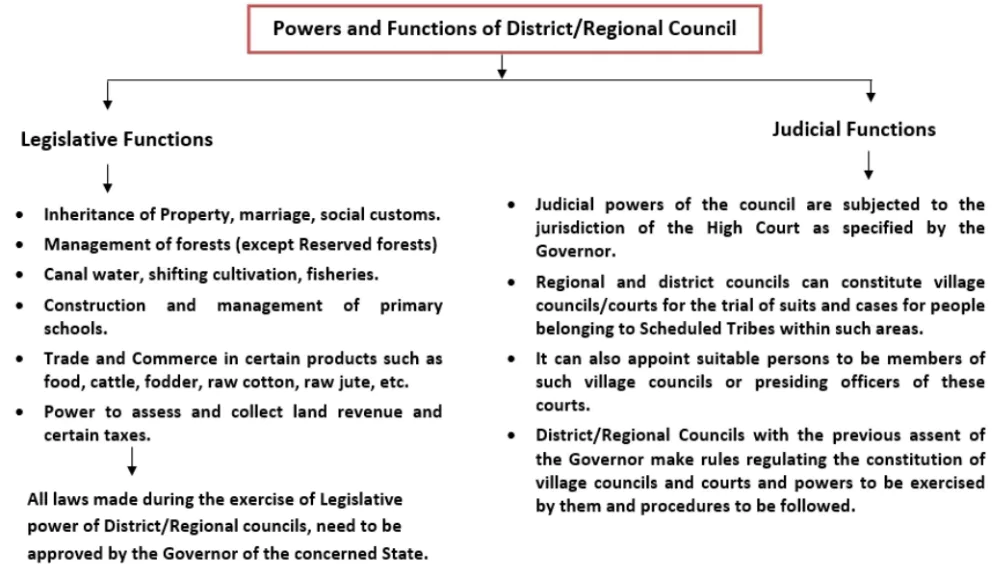The Assam government has decided to implement 57 out of the 67 recommendations of the Justice (retired) Biplab Sarma Committee
- Immediate Trigger: In the wake of rising communal tensions by the alleged gang-rape of a minor girl in central Assam’s Dhing on August 22.
- Eastern Assam is also protesting to protect the rights of the khilonjia or indigenous communities against the “aggression” of the non-Assamese and other bohiragata (outsiders)
Justice Biplab Sarma Committee

- Appointment: The Commitee was appointed by the Ministry of Home Affairs (MHA) to apply Clause 6 of the Assam Accord in the wake of protest against the anti-Citizenship (Amendment) Act in 2019
- It is a 14-member committee, headed by retired Justice Biplab Sarma
- Recommendations: The Committee has given a total of 67 recommendations,
- The State Government of Assam has decided to implement 85% (57) of these recommendations falling under its ambit.
- The remaining 10 of the 67 recommendations is under the purview of the Central Government and would be taken up with New Delhi.
Enroll now for UPSC Online Classes
Roadmap for Implementation
- Consultative Process: The 57 recommendations will be discussed with the All Assam Students’ Union (AASU) and other organisations to reach an agreement.
- The 57 recommendations will be implemented instantly in the State except for the Sixth Schedule areas and the Barak Valley
- Including 6th Schedule Areas: Prior approvals would be taken up from all the Sixth Schedule areas ie. (Bodoland Territorial Region, the Dima Hasao Autonomous Council, and the Karbi Anglong Autonomous Council) to avoid hurting sensitivities around language, culture, and traditions.
- Barak Valley in southern Assam is Bengali-dominated and a similar approval would also be taken before implementing the recommendations
The Sixth Schedule of the Indian Constitution
- This schedule delineates special provisions for governance, administration, and preservation of the cultural identity and rights of the indigenous tribal populations residing in the tribal areas of northeastern states of Assam, Meghalaya, Tripura, and Mizoram.
- Features:
- Tribal areas have been constituted as autonomous districts (ADs). These ADs fall under state executive authority.
- Governors can organize & reorganize the autonomous districts (ADs). Governors can even divide the ADs into several autonomous regions.
- Tenure: Each ADs have a District Council of 30 members for a 5-year term. (26 elected + 4 nominated by Governor). Each autonomous region has a separate regional council.
- Authority: Governor is the authority in case of Assam for both Central & State Acts, whereas, President directs in case of Meghalaya, Tripura & Mizoram for Central Acts & Governor in respect of State Acts.
- Central or State Acts do not apply to autonomous districts & autonomous regions or apply with specified modifications & exceptions.
- Power of Governor: Governor can appoint a commission to examine & report on any matter relating to administration of autonomous regions & can even dissolve District & Regional Council on recommendation of such commission

|
Check Out UPSC NCERT Textbooks From PW Store
About Assam Accord
- The Assam Accord is a tripartite accord signed between the All Assam Students Union (AASU), All Assam Gana Sangram Parishad (AAGSP), Central and State Governments in 1985.
- Cut off date:
-
- 1st January 1966: It was determined as the cut-off date for the purpose of detection and deletion of foreigners and allowed for citizenship for all persons coming to Assam from “Specified Territory” before the cut-off date.
- 1st January 1966 to 24th March 1971: All persons who came to Assam prior to 1st January 1966 and up to 24th March 1971 shall be detected in accordance with the provisions of the Foreigners Act, 1946 and the Foreigners (Tribunals) Order, 1939.
- After 25th March 1971: Foreigners who came to Assam on or after 25th March 1971 shall continue to be detected, deleted and expelled in accordance with law.
Clause 6 of Assam Accord: Constitutional, Legislative & Administrative safeguards
- Constitutional, legislative and administrative safeguards, as may be appropriate, shall be provided to protect, preserve and promote the cultural, social, linguistic identity and heritage of the Assamese people.
- Definition of Assamese People: Various Stakeholders of the society to come together and prepare a definition of “Assamese Peoples”
|
![]() 6 Sep 2024
6 Sep 2024
